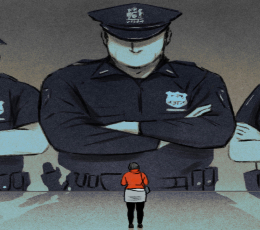Actor Nick Mikhail posted a 2-minute video on Instagram showing safe-distancing enforcement officers (SDEOs) and Police, entering his home on 31 July “without a warrant”. It was after multiple reports were made alleging a large gathering there.
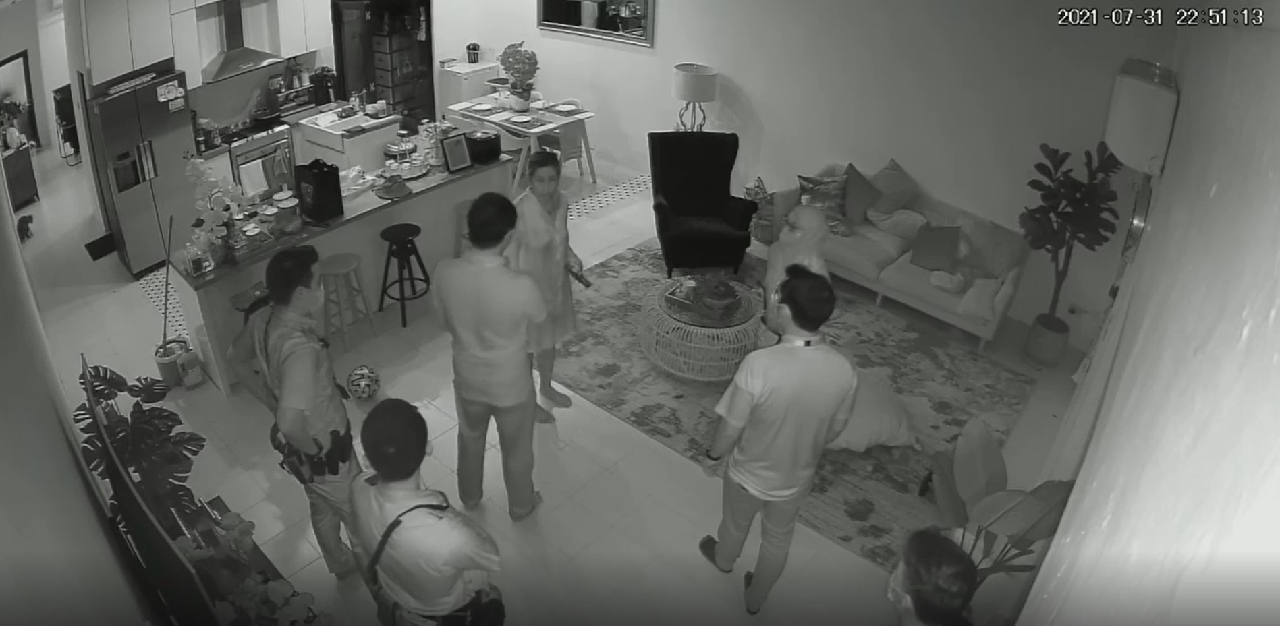
His wife was then alone at home and the footage showed officers standing around and looking at his pictures in the living room.
The Urban Redevelopment Authority (URA) said in a statement issued two days later, on 2 August, that ‘SDEOs are empowered to enter, inspect and search various premises, including residences, without a warrant’ to ensure that Covid-19 regulations are adhered to.
The next day, on 3 August, Parliament passed a Bill allowing police officers to forcibly enter a home without a warrant or court order should they suspect someone inside is in distress. The BIll also prevents them from punishment if the officers acted in “good faith and with reasonable care”.
Civil rights, public safety and government authority are constant enemy combatants since no one is an island and society functions through a law and order system. This brings about the question of how benefits are weighed against the costs in different situations. More contextually, from whose perspective.
Civil rights vs public safety vs government authority
The approach should always be to “treat personal privacy and public safety with even-handedness [and that] a proper balance needs to be struck”, says Associate Professor of Law at the Singapore Management University (SMU) Eugene Tan. He adds that “it’s a false dichotomy to say that one must always trump the other”.
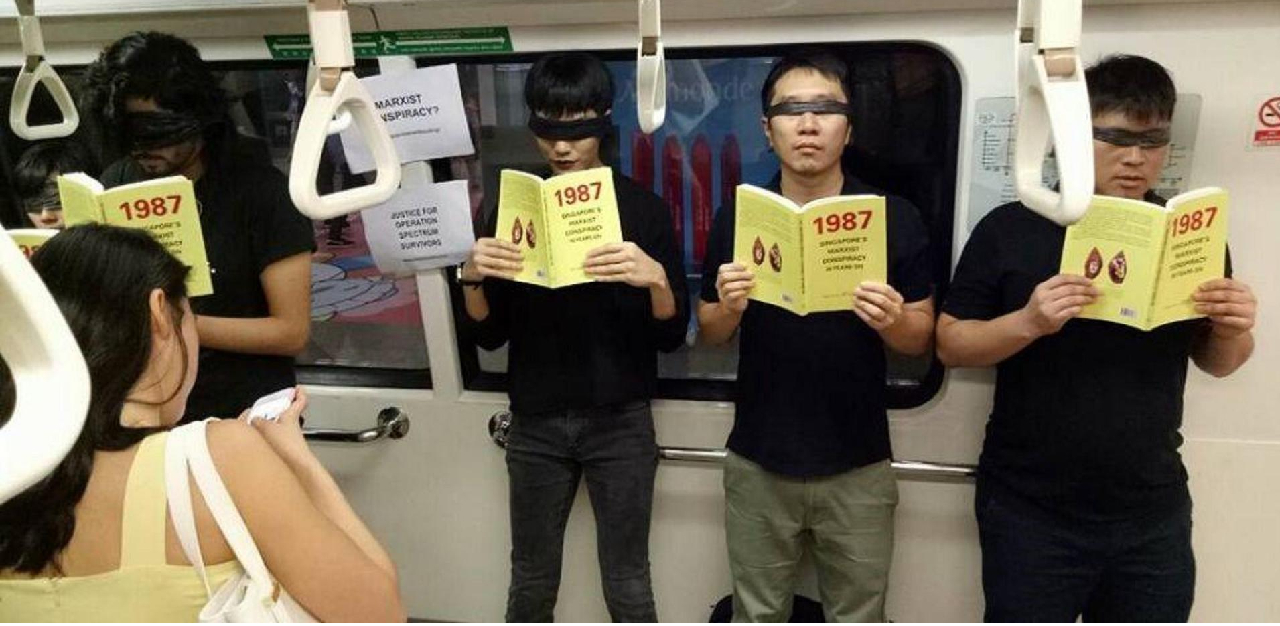
To an individual, civil rights seems the most logical priority they value over everything else.
While 25-year-old National University of Singapore (NUS) student Steve Teo agrees that there is always a balance to strike, he believes civil rights are more important and says that “the dichotomy presented between civil rights and personal and public safety is false and unfounded”.
Mr Teo cites the government authorising the use of data from TraceTogether in police investigations as an example.
He says the government had previously given the assurance that the contact tracing data is exempted from criminal investigations, but said later that the information will be used under the Criminal Procedure Code for serious crimes.
That in itself is a concern to Mr Teo, and “with the extensive surveillance that the Government already has islandwide, such as [closed-circuit television] CCTVs, ez-link card data, phone data”, he feels this enforces control over the people.
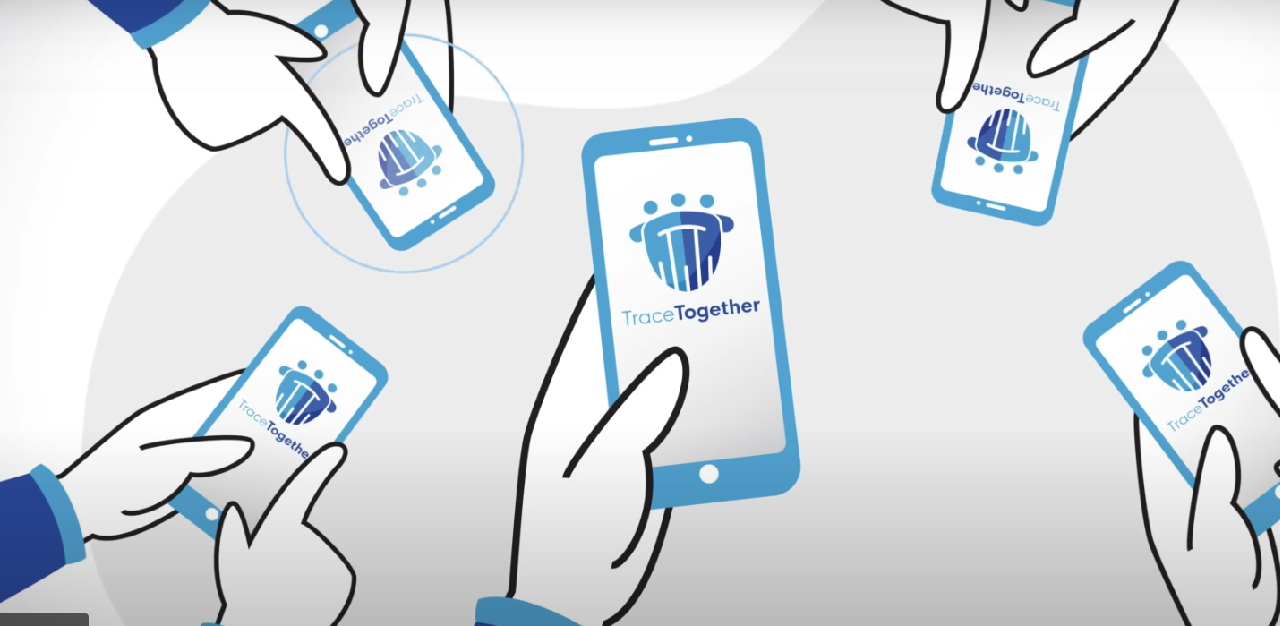
Despite Foreign Minister Vivian Balakrishnan, who is also in charge of Singapore’s Smart Nation drive, taking full responsibility for the “error”, Mr Teo feels that it was “still an intentional loophole for the police to use the data from TraceTogether, whether to avoid setting a precedent for having to concede more civil liberties, or other reasons – rather than an actual need for [TraceTogether] in policing”.
On the contrary, advertising strategist Jason Lee says it is a need to protect everyone.
The 28-year-old feels that civil rights is fundamentally a “theme of protection” that cannot exist if “one’s actions result as a threat to another, and deprives the other from basic levels of safety”.
But he sets a premise that government authority that is used to achieve a balanced state of protection should only be wielded “at the level reasonably sufficient to ensure public safety, and not more”.
Assoc Prof Tan echoes this point. He says the Government has “requisite authority to address personal and public safety issues” but it must be set within the premises of “legal boundaries and ethical expectations relating to personal privacy”.
This way, it will “enable trust, confidence, and cooperation to develop between the authorities and stakeholders”, Assoc Prof Tan adds.
Laws can be beneficial and inimical… depending on how it is used
Mr Teo brings up yet another example of the Government authority acting “absolutely in the name of public safety”.
“Officers from the National Environment Agency (NEA) and [now] SDEOs can enter someone’s house without a warrant. It seems they have been given even more power to enter homes without a warrant than the police. This is simply absurd,” he says.
“Exacerbating this issue is a very large number of rank-and-file civil servants [who seem to have] considerable authority, especially many of whom are without military or police training and discipline,” he says, adding that this not only overrides his civil rights, it threatens his private safety.
Explaining how, Mr Teo says there are many government departments with officers who are granted powers, and “the scope of their powers is challenging. In that case, a person’s civil rights can be easily taken advantage of and abused by these officers”.
“It is confusing to the public. How will they actually know who they need to admit into their homes or premises without a warrant (or risk prosecution or having their door broken down), and who must produce a warrant,” he says.
Mr Teo especially feels that vulnerable groups, such as children and the elderly, are even more at risk as they are not aware of this.
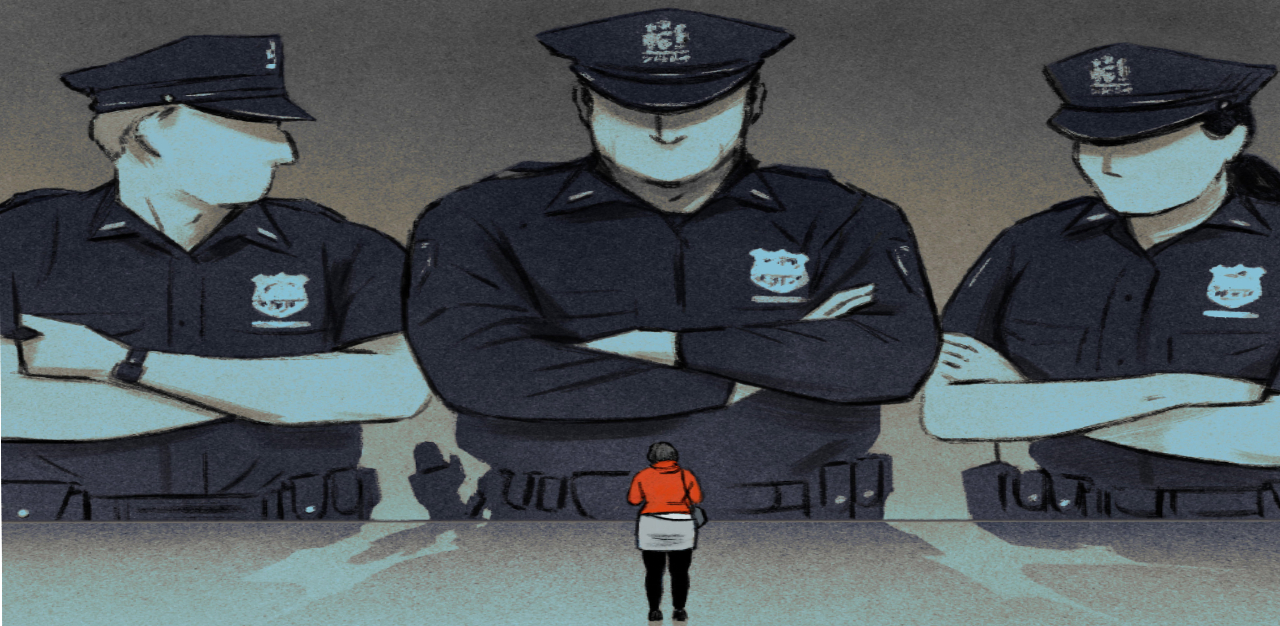
“What if a pedophile impersonates an officer and convinces a teenage girl who is home alone to open the door?” he asks, adding that such a scenario is not far-fetched. He cited a 2016 case of a National Servicemen (NSF) who used his police warrant card to force a teenage girl to perform oral sex on her teenage boyfriend while he watched, before raping her.
A more recent case of abuse involved a man impersonating a police officer to steal another man’s phone on 7 January. The culprit approached the victim at a back lane of Rowell Road and under the pretence of being a police officer, conducted checks, took the victim’s phone and told him to collect it four days later at a police station in Tanjong Pagar.
Senior business development executive for a law firm Michelle Kho, on the other hand, sees both the protection and perils that coexist in these laws as a double-edged sword.
“I think it’s great that SDEOs and the police can enter homes to check if any laws are breached. This would help nab those who flout the law, and be a deterrent to those who are thinking of doing so,” says the 31-year-old.
“I would also question whether the officers are 100 percent covid-free? They’d be walking [around] my entire home and might be bringing in germs and bacteria from elsewhere. At the same time, my kids could be napping and I wouldn’t want their sleep to be disrupted when an officer barges into their rooms,” Ms Kho adds.
Mr Lee interpreted the regulations from a different perspective. He believes SDEOs and the Police do not “enjoy having to enter someone’s house on top of their regular duties” and adds that “the regulation helps allow the state to implement and enforce certain decisions a little better, for the sake of public safety and public benefit”.
He therefore believes that there is a need to protect these officers because “otherwise, they would rather err on the side of safety and not investigate beyond necessary, which would lead to a redundancy in their roles and the regulations”.
This is supported by Assoc Prof Tan who says that it still “benefits everyone in society to have the officers help keep people safe and away from harm”.
He sees the specific regulations as necessary during a public health crisis because “the distinction between one’s private safety and public safety cannot be overstated as they are intimately connected”.
“An individual is not safe if society is not,” Assoc Prof Tan says.
Thus, contextualising the current climate in Singapore, he says that Covid-19 related laws need to “prioritise public health concerns and provide enforcement powers, including the legal power, to search without warrants issued to non-police officers”.
Mr Lee agrees, saying that “domestic homes are potential ‘blind spots’ that are hard to police when it comes to Covid-19 distancing rules”.
“Having the right to enter helps prevent these blind spots from being abused and treated as loopholes,” he adds.
The way to gain the public’s confidence, compliance and cooperation in this is for the Government to tread carefully, “ensure that privacy is not unnecessarily intruded upon and that the governmental powers are sufficient to get the job done in a public health crisis”, Assoc Prof Tan says.
Clash and interplay of perceived rights and priorities
Yet, even with utmost care and rigorous deliberation, clashes of rights and priorities will always jostle. When it occurs among the person, public and the government, how should these differences be settled then?
Assoc Prof Tan says they are “straightforward”.
“Personal privacy, and personal and public safety are imperative and [important] to get the balance right,” he says.

When there are situations where the favour is always tilted to one side, upholding personal civil rights will unequivocally be “unadulterated libertarianism”, while overarching public safety will be “unbridled public power”, Assoc Prof Tan says.
But under a pandemic or crisis climate, the interplay is actually simpler.
He says the emphasis has always been on community interests, and in a pandemic situation it has been reinforced.
Assoc Prof Tan cites sections 34 and 35 of the COVID-19 (Temporary Measures) Act 2020 and how the Health Minister may use it to “make regulations for the purpose of preventing, protecting against, delaying or otherwise controlling the incidence or transmission of COVID-19 in Singapore”.
Under this law, enforcement officers for the purpose of carrying out any control order are not confined to police officers only, and could be a statutory board officer, health officer, a public officer, or an auxiliary police officer, he says.
Mr Teo feels differently. He says how the Government manages this delicate equilibrium of rights, lacks transparency and has caused “a deep erosion of public trust”.
He says fearing their whereabouts are being tracked, some of his friends even turn off their apps after they checked-in, or wrap their tokens in aluminium foil.
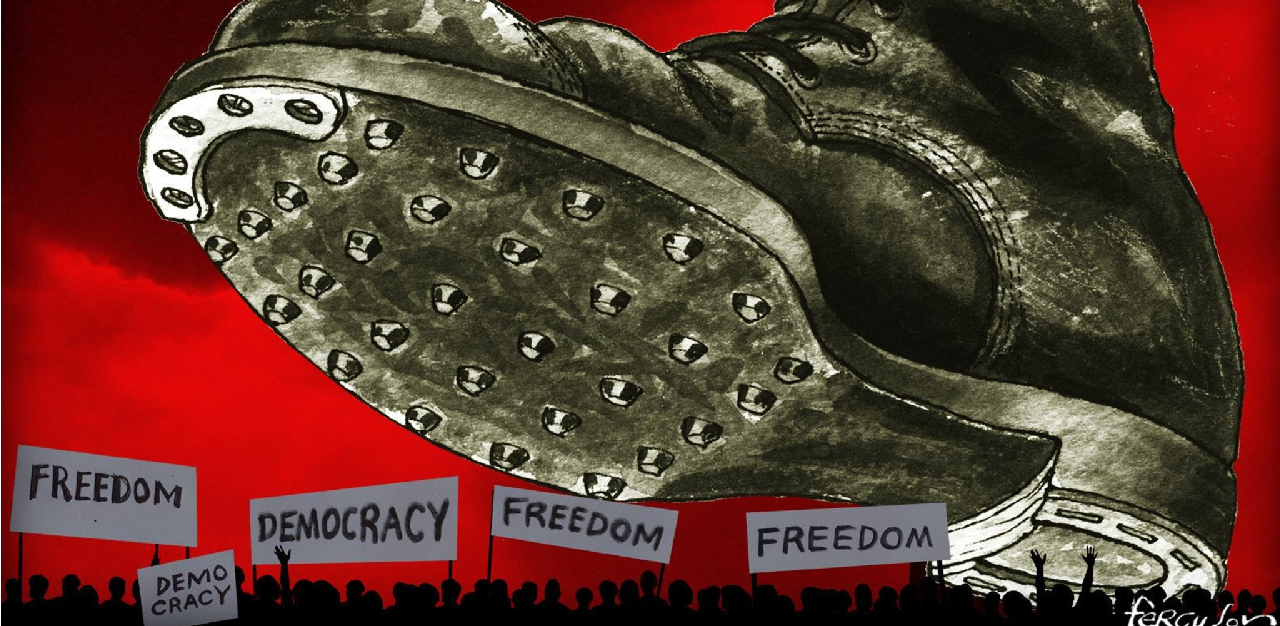
Unlike Mr Teo, Ms Kho has a more realistic view and feels that the Government’s authority is absolute and even if Singaporeans complain about civil rights being violated, they still comply.
“It’s always been in the Singaporean DNA to follow the Government’s ideology, hasn’t it?” she asks. “I don’t think we’ve ever had much ‘individual rights’ per se. We should all be used to this and if our Government creates a certain policy, [it’s for our benefit] and we just have to learn to live with it,” she adds.
Mr Lee prioritises public safety above everything else.
He says that if one person’s actions can potentially cause harm to another, then both persons’ rights need to be taken into consideration and here is where public safety applies.
The issue of abuse
The common concern articulated throughout has been that of abuse of power by the SDEOs.
Mr Teo says that it is plausible and likely, “even for those sitting behind surveillance cameras and systems”.
He feels the way to bolster public trust in those with vested powers is to build an effective system with safeguards in place.
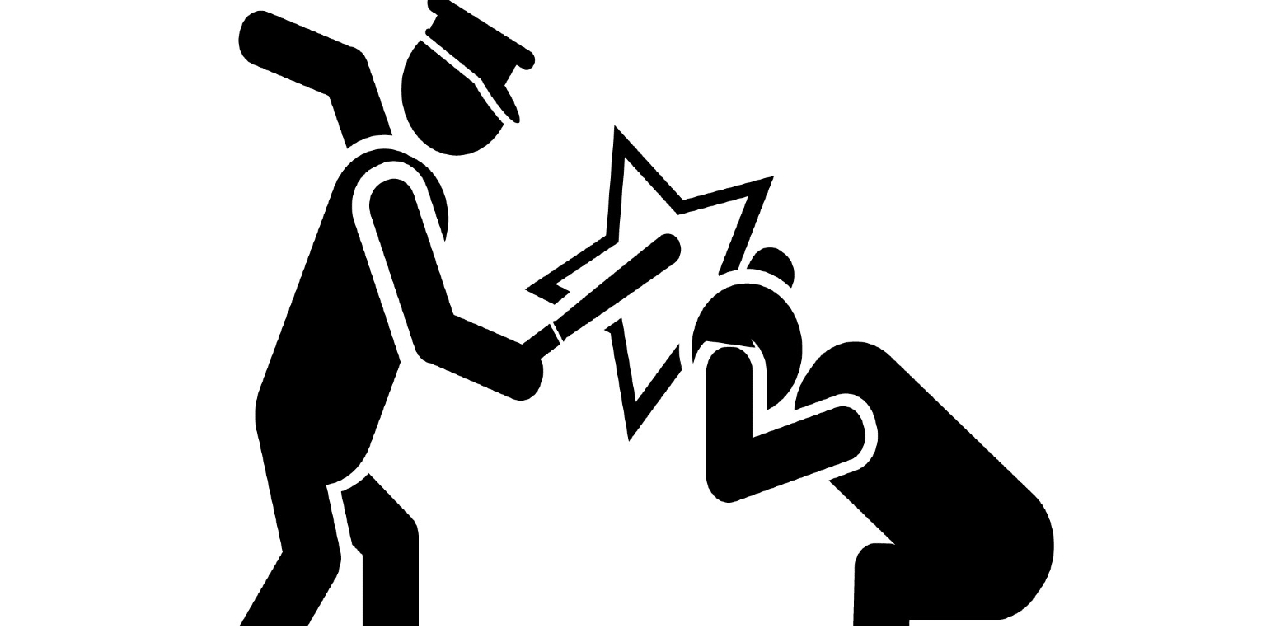
Mr Teo suggests a centralised list to help identify statutory board officers who are allowed to enter premises, with or without a warrant, and under what circumstances.
He adds that a public number or website to verify and authenticate a public officer’s identity should be set up for children and the elderly to access.
Mr Lee believes in transparency to prevent abuse, saying that “transparency in the planning process, in the decision making, reports of complaints, and even allowing the general public to have a voice can help bring citizens on the same page as the authorities”.
Assoc Prof Tan concurs. He says “abuse of power is a legitimate concern but should not be overstated”.
He also calls into question “the recent brouhaha over whether SDEOs have abused their powers” when entering Mr Mikhail’s house.
“They [were] properly authorised [and] could search the premises without a search warrant, but how the search was conducted and enforcement officers trained can help resolve public displeasure,” Assoc Prof Tan adds.
In the event of an abuse, he says while legal action “alleging that the authorities acted either unlawfully, or unreasonably, or in a procedurally flawed manner” can be pursued, he prefers addressing the issue through a “simple non-legal recourse of filing a complaint with the relevant government agency that was responsible for the search”.
Join the conversations on TheHomeGround Asia’s Facebook and Instagram, and get the latest updates via Telegram.
